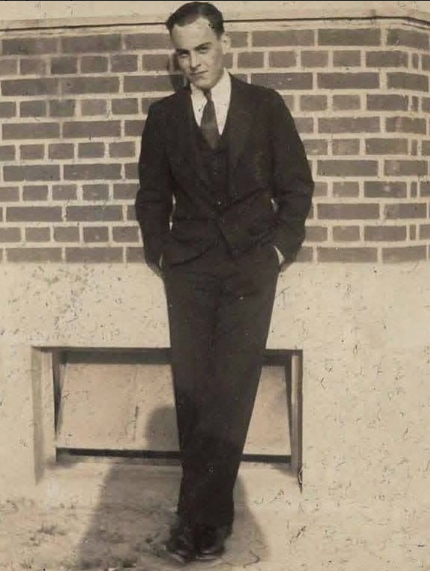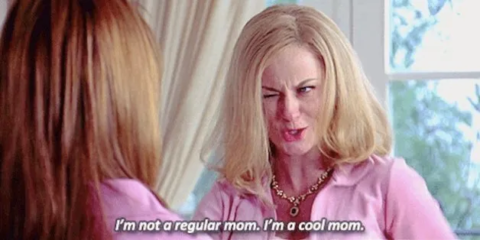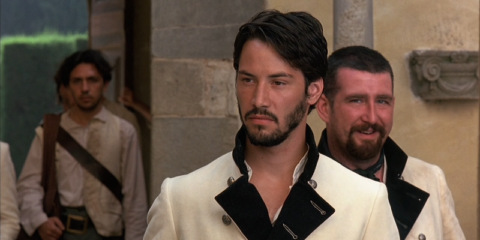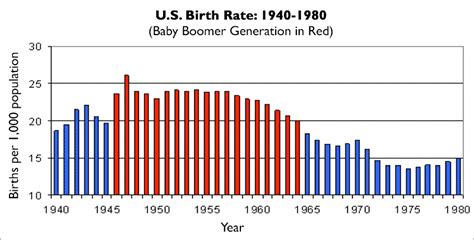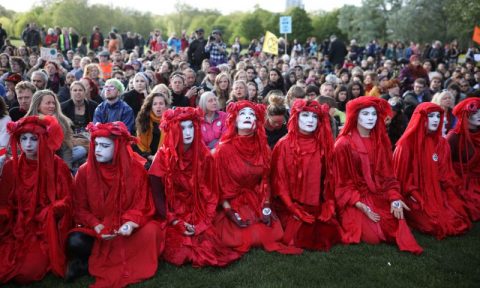The quick and dirty version is: Since the goddamn Boomers will never, ever retire — they’ll keep patting themselves on the back for Sticking It to the Man until they’re lowered into their tie-dyed, patchouli-reeking coffins, even though they’re all hedge fund managers and live in McMansions — the subsequent generations had to find a new area in which to compete for social status. Thus lifestyle striving for Gen X, and persona striving for the Millennials.
For Gen X, think of my personal candidate for “everything that’s wrong with the 90s, all in one place,” the 1994 movie Reality Bites. Don’t rent it unless you’re current on your blood pressure meds. It’s four of the 1990s’ most insufferable people (Winona Ryder, Ethan Hawke, Ben Stiller, Janeane Garofalo) quipping about being slackers. Well, except Stiller (also the director), who plays the grasping, uptight, sold-his-soul-to-The-Man yuppie foil to the other three. Stiller is the Gen Xer who chose to compete in the oversaturated career arena; he’s cartoonishly evil. The rest of them hang out in coffee houses, polishing their image. They’re lifestyle competitors.
For Millennials, and whatever we’re calling the upcoming generation (“The Lobotomized Snowflake Posse” is my suggestion, brevity be damned), well, just look at social media. Even lounging-around-Starbucks lifestyle competition is out of reach for people who went $100K in the hole for a Gender Studies degree. The only currency they’ve got is effort — hey, didn’t Karl Marx say something about that? — so Twitter becomes their full time job. Xzhe with the most followers wins.
Severian, “Why So #Woke?”, Rotten Chestnuts, 2020-01-07.
December 23, 2022
QotD: Wokeness as a lifestyle
October 2, 2022
“We are governed by a transnational criminal enterprise”
Elizabeth Nickson on the deliberately created web of disasters the entire western world faces thanks to our governments’ allegiance to philosophies promulgated by organizations like the WEF:
We are governed by a transnational criminal enterprise.
What are you doing about it?
One sentence caught my attention in Giorgia Meloni’s speeches this week. She said that most insulting thing for her and other Italians, was the EU’s order to erase all references to Christianity, Christmas and Christ from all government documents by Christmas (ironic) of 2022.
This is another of those blows from the One Worlders that feels like someone is stepping on your heart and pressing down. I may not be a church-going Christian, but it defines me like almost nothing else. It is my history, my literature, my culture, my ethical standards, my everything. Christianity defines the western world, it is an activist faith, it orders a congregant to spread goodness wherever he or she goes. Erasing it is a crime similar in effect as the death camps of which our leaders dream. It destroys the ground of our being.
And then I think of my father. Look at this photograph. As a teen, he was very much like the kids of today, self-involved, vain, a girl magnet like his great grandson, Bryson, who never sees a girl who doesn’t interest him. But he was one of the few fully adult men I have known. I want to say only, but I’ve met thousands of men and know few of them as well as I knew him.
It wasn’t until long after my father’s death that I discovered that he was at the tip of the spear of the British Army as they landed at D-Day, pressed forward into France and then into Germany. The Canadian Army, the fourth largest standing army in the world in 1945, had a reputation of brutalism like no other army, famous for it in WW1. This was in part because it was built – as was Canada – by some of the fiercest medieval clans in Europe. Just before James 1 murdered the British border clan heads, Elizabeth I said that with 10,000 such men, James could topple any throne in Europe. Canada attracted those clans, the climate, the terrain was the roughest in the world, and only they could conquer it. And in 1943, they formed an army like none other.
Being his child, I can grope myself into what he was feeling during those two years under remorseless fire, on the ground, buried into caves on the Rhine that last winter, responsible for hundreds of men. He woke up every day for two years, with death certain. I have his Book of Common Prayer. It is swollen with use, especially the prayers for the dead he read over the bodies of his friends. After the war he was put in charge of a Nazi camp and told to “sort those people out”. Kind of like a desert in hell, I would think.
His faith carried him through those years. He was welded to it by the time it was over, although he never proselytized, it was just part of him. Christianity acts, with good men, as spur and comfort. It informed every ethical decision he made. After the war, he came home and worked, fighting unions that destroyed the textile industry in Quebec, trying to keep his factory going in the face of actual bags of burning shit thrown at our house. He retired at 55 with a non-compete clause and spent the rest of his life in charity, working for free. He ran in succession one enterprise after another. His entire life, all of it, he used his spare time to work in the community. Three meetings a week, no matter what. He knew where every sparrow fell in the country village I grew up in, and in the city to which he retired. And if he missed one, his uncles, aunts or cousins picked them up and set them right. It was how they lived.
That used to be a requirement for adulthood. He learned it from his family who came to the New World in 1630, and who all, to a man or woman, worked for free in whatever village or county they found themselves in, making sure everyone was all right. In the towns and cities they settled, across the US and Canada from 1600 to 1945, you were only considered an adult if you rolled up your sleeves and worked for other people in the place that you lived, without being paid, and without expecting praise.
If you didn’t do that work, you were considered a baby that everyone else had to carry. You were made to feel that.
It was that above every single other thing, that made the US and Canada the magnet it is for every other race and country in the world. Self-government by adults. And by the way, for the race-hustlers, they were officers on the Underground Railroad, when it wasn’t popular to be on the side of people of color. They married into Indian bands when it was absolutely beyond the pale.
The boomer generation abandoned that task, and the devolution of the culture was swift. The left creates jobs by creating bureaucrats and the responsibilities that used to be held in common, solved in common, done for goodness alone, are now done for money and benefits by people who generally do not live in the regions they supervise. They have screwed up everything because they can’t make decisions because they have no courage. And they have no courage because they have no ethical standards. Their only standard is whether it increases their own comfort. And that of maybe two other people. To whom they are related.
The only thing they create is debt and obstacles to growth. Aside from technical/engineering standards, (which are being broken) everything they do, can be done by citizens acting in concert.
Our disengagement led to our current economic catastrophe, like nothing else. It is the reason the globalist criminals were able to take over. It is why we now sit in danger of nuclear war.
September 19, 2022
There’s a difference between “caring what kids think” and “pandering for kids’ attention and affection”
Rob Henderson wonders why so many adults these days are clearly desperate for the approval of young people:
During my recent re-watch of the entirety of Mad Men, which takes place in the 1960s, a recurring thought entered my mind: This was the last generation where young adults behaved like they were older than their real age. Don Draper is around thirty-five at the start of the series, and carries himself in a more adult manner than many 45 year olds today.
Recently, Abigail Shrier quoted a physician and psychologist who stated that “Fifty years ago, boys wanted to be men. But today, many American men want to be boys”.
Until the early 1960s, young people acted older than their actual age. Now, older adults pretend to be younger than their actual age.
Which is perhaps one reason why boomers are so easy to mock. They don’t act their age.
[…]
About two years later, I was at a breakfast gathering with some other students on campus. Our guest was a former governor and presidential candidate. He was gracious, and spent most of the time answering questions from students.
And in his answers, he continually returned to variations of the same response: “We screwed up, and it’s up to you guys to fix it. I’m so happy to see how bright you all are and how sharp your questions have been, because you will fix the mistakes my generation made.”
This mystified me. This guy was well into his sixties, with a lifetime of unique experiences in leadership roles, was telling a bunch of 20-year-olds (though I was a little older) that older adults are relying on them.
In the military, we thought of those senior to us as the leaders. It was okay to give feedback, of course. Commanding officers would regularly consult lower ranking and enlisted members to see what was working and what could be improved. But that happens only after getting through the filter of the initial training endeavors.
I remember in the first week of basic training, our instructor declared, “I don’t want any of you [expletive] thinking you are doing anyone a favor being here. I could get rid of all of you clowns and have your replacements here within the hour.” (This was 2007, well before the recruitment crisis).
My 17-year-old brain heard that thought, yeah, he’s probably right. I thought of the bus loads of other ungainly young guys I saw stepping off and being confronted with “Pick ’em up, and put ’em down” and other mind games from the instructors while waiting in the endless in-processing lines.
So then I got to college and learned that even though any seat, at least at selective schools, can be filled immediately with a bright applicant (top colleges reject thousands of them each year), students are never ejected for disrespecting professors or anyone else. In the military the first message was, you are a peon and less than nothing and we can easily have you replaced (this changes as you advance in rank, of course — at least to some degree). In college, the first message was, you are amazing and privileged and a future leader (and marginalized and erased) and you will never lose your position here among the future ruling class. That feeling of whiplash will forever linger in my mind.
[…]
Older adults crave validation from the youth, which is one reason they are mocked. Young people sense their desire to be seen as cool and deprive them of this by taunting them.
This desire for esteem may be why older adults won’t exert any authority in response to energetic young conflict entrepreneurs who yell at them or threaten them.
Older adults want to be on the side of youth. So desperate to pencil themselves out of the “old” category. Every parent wants to be the “cool parent”, every professor wants to be the “cool” professor. You can be cool and still be an authority figure. Maybe decades of imbibing the worst of U.S. pop culture made everyone forget this.
June 4, 2022
QotD: A smidgen of forgiveness for the Boomers
For as much shit as I give them — and as much as they deserve it — I can forgive The Boomers quite a bit. In all previous history, having your entire world accommodate itself to your every whim was a privilege reserved for the more puissant monarchs of the bigger kingdoms. But starting about 1963, American life completely recalibrated itself around the passing fancies of ordinary suburban kids.
That has to mess with your head a bit.
In the same way, no previous generation had ever seen their youth commercialized and sold back to them in middle age, and that’s what messed with our heads. The passing fancies of those ordinary suburban kids in 1963 all involved sex, drugs, and rock ‘n’ roll. We — Gen X — wanted those things too, but since by definition nothing is lamer than your parents, we had to be all, like, you know, whatever about it.
If you can grok the concept of a 45 year old telling you — with complete, almost heartbreaking sincerity — not to trust anyone over 30, you can grok the 1990s.
If you can’t, I don’t recommend trying. It’s like an anti-koan — if you solve it, you’ll achieve a lower consciousness. But if you’re determined to experience it, get really, really, really drunk and watch Forrest Gump a few times back to back. Really experience it as a work of art … because it is. It’s meticulously constructed. Forrest Gump is a mildly retarded man who stumbles, through dumb fucking luck, into fame and fortune through every significant event of the last half century. (He even has a huge dick, although that’s a detail from the source novel that got left on the cutting room floor).
Is there any more perfect metaphor for My G-G-Generation than that?
That’s what we grew up with. That whole generation was what some wag said about George Bush the First: Born on third base, thinking he hit a triple. And, of course, by merciless application of cold logic: that was also us. The only difference was that while the Boomers were congenitally incapable of seeing it, we were congenitally incapable of getting over it. So, you know, like, whatever.
Severian, “A Meta-Review”, Founding Questions, 2022-02-24.
April 18, 2022
Jen Gerson raises the banner of revolution against the Boomergeoisie
In the free-to-read portion of last week’s weekend post from The Line, Jen Gerson channels the anger and frustration of the Millennial sans-culottes (or should that be the sans-maisons?) who are being systematically locked out of the housing market in Canada to protect the paper investments of the Boomer generation:

“Green suburbs” by Pierre Metivier is licensed under CC BY-NC 2.0
It’s come to the attention of several of the editors at The Line that some of you Boomers are mad at us. Or, more specifically, you’re mad at co-founder Jen Gerson who popped up a particularly scathing screed about the housing market earlier this week.
To wit:
Our Boomer got his and that’s what matters. We have an entire government apparatus set up to protect that guy. The guy with the money and the guy who votes. The rich-on-paper people are happy, and as long as everybody gets a seat somewhere on this pyramid, then everybody else should be happy too.
We will admit that Gerson didn’t intend this column to come across as an anti-Boomer harangue. She intended it as an anti-government-housing-policy-that-favours-boomers-over-young-people rant, but we can understand why some of our more mature readers took umbrage. We would say we were sorry but … we’re mostly not. A few points:
Firstly, when we talk about macroeconomics and intergenerational equity issues, we are emphatically not talking about individuals. Nobody born between the years 1946 and 1964 is personally, individually morally culpable for the state of the housing market, or the economy, or climate change or any other tragedy of the commons.
[Otherwise, we’d be adopting the tactics of the CRT movement and talking about “Boomer Fragility” and other similar kafkatraps where denial is proof of guilt.]
If you bought a $40,000 house in the ’80s, you couldn’t possibly have known that that purchase would eventually lead to a six-figure real estate portfolio by 2020: you took a risk on the economy as it existed at the time, even struggling through a rough patch of high interest rates, and that risk paid off. No Millennial would have done any differently had we been in your position.
But, let’s be honest, if you are a Canadian Boomer, you were probably born in a country that hadn’t been bombed to the ground just before an historic economic boom so grand that it allowed unprecedented investment in your health, education, development and well being.
That doesn’t mean you didn’t also work hard, and suffer setbacks, as all humans must do over the course of a lifetime. Some of you made bad decisions, and some of you were unlucky, certainly. The bell curve tolls for us all. But you did get to play the game of life during a particularly fortuitous period of history. That period is now ending and the currents of history aren’t going to be as kind to your kids as they were to you (although let’s not kid ourselves. Canadian Millennials and Zers don’t have it so bad in the greater scheme of things, either.) Recognizing this — let’s call it Boomer privilege — doesn’t cost you anything. It doesn’t hurt you. It’s not a personal attack.
What we do find fascinating is the Boomers among our readership who take discussions about intergenerational equity and demographic advantage very, very personally. Forgive us for playing pop psychologist, but it almost feels like some of you park so much of your worth as human beings into your ability to earn wealth that to have someone point out that this wealth accumulation was helped by macroeconomic factors over which you had no control — luck, essentially — seems to be read as an attack on your sense of self, purpose, and identity. (Is this why so many of you struggle to retire? Is there a frisson of guilty conscience at play?)
That is … your issue. Being lucky isn’t an indictment of your character. We assume all of our Line subscribers are genuinely good people who knit little paw mittens for orphaned cats, okay? Otherwise, why else would you be here?
November 23, 2021
QotD: Generation X and the 1990s
When I retired, a retro 1990s fad was just gearing up on campus. It was an Uncanny Valley kind of experience. There they were, dressing like day-glo lumberjacks and listening to knockoff BritPop, but still plodding around campus with that peculiarly late-Millennial affect. You know the one — half secret policeman, half cringing mouse. Unpleasant, but it got me thinking about my own college years back at the dawn of the Clinton Era. We really screwed the pooch, didn’t we?
I’m referring, of course, to Gen X’s patented brand of “irony”. We’ve talked about this before, but here’s a quick recap: Every middle-class kid born after about 1965 was raised to believe that Authenticity was the thing, the only thing. Just do what you feel. Question authority. Don’t listen to The Man!
The problem, of course, is that we were told this by The Man.
It had a weird, telescoping effect. On campus, you were surrounded by people who actually were hippies, plus a whole bunch of wild-eyed fanatics who were sure they would’ve made truly excellent hippies if they hadn’t been in elementary school at the time, plus a bunch of kids — these would be your classmates — who thought of “Woodstock” as a brand name, a kind of backpacking-through-Europe, taking-a-year-off-to-find-myself experience that everyone has as a matter of course before settling down to the serious business of making partner at the law firm.
In short: Our parents were stuck in adolescence, and, being adolescents ourselves, we didn’t understand that “Rebellion” wasn’t something the hippies invented. We wanted to experience sex, drugs, and rock’n’roll, too, but since the Baby Boomers treated those as their exclusive property instead of what they actually are — i.e. the natural impulses of teenagers in all times and places — we had to be all, like, you know, whatever about it. […]
That was the 1990s. Faced with a paradox that everything your parents say, do, and believe is lame — according to your parents! — the only safe way is to make sure nobody can figure out exactly what your attitude is at any given instant. You might end up working 90 hour weeks at the office to pay the nut on the McMansion and the Volvo the same way they did, but at least you’d be, you know, ironic about it. The ketman of the suburbs.
See what happens when you listen to your elders, kids?
Severian, “The Virtue of Hypocrisy”, Rotten Chestnuts, 2019-01-19.
June 14, 2021
Movies based on “classic literature”
Severian considers the relative glut of movies more-or-less based on the classics of literature from his formative years:
When I was a young buck, there was a fad for making movies out of “classic literature”. Scads of chick flicks, of course — Jane Austen’s complete works, the Brontës, and so on — but they also took a stab at Shakespeare. Mostly they stuck to the comedies — and trust me, watching Keanu Reeves trying to handle Much Ado About Nothing is hilarious, in all the wrong ways — but they’d occasionally give the tragedies a shot. Kenneth Branagh’s Hamlet is pretty good despite all the distracting cameos, his Othello is at least sincere (ye gods, imagine trying to make that today!), I think I’m forgetting a few. Mel Gibson gave Hamlet a go back in the early 1990s, and so on. Again, I’m pretty sure I’m forgetting a few.
It always struck me as odd. Unless they timed the theatrical releases to midterm and finals week, hoping to hoover up the dollars of desperate sophomores who didn’t do the homework, it didn’t make much sense, marketing-wise. We were a much more culturally literate people once, it’s true*, but there’s just not much of an audience for the Bard anymore. Nor was it a case of SJWs trying to destroy something good just on general principles. I’m sure Gwyneth Paltrow was bad as Emma, but the idea of retconning every single female in the Western Canon into a Strong, Confident Woman(TM) was still in its infancy. My only other guess was that, since college enrollments were skyrocketing, maybe the parents of all those first-gen college kids were feeling mal-educated and trying to catch up …? Lame, I know, but it was the best I could do.
Looking back on it now, I see my problem: I was looking at it from the demand side. Silly and naive as I was, I assumed that Hollywood’s primary concern was making money, so they went out and found what the people wanted to see, then gave it to them. For instance, I thought Titanic was going to be a huge flop. I mean, the boat sinks. We know that. How do you squeeze any dramatic tension out of it? I should’ve realized they’d be playing it as a doomed-lovers tragedy — girls love that shit, what with the big flouncy costumes and all. Once I realized that, I thought I had it all figured out — every girl I, personally, knew found the works of Jane Austen tedious, but that’s because (I reasoned) you have to supply the images for yourself. Put Hunky McBeef up there in breeches and a peruke, Waify Beecup in a Regency dress, and it’s chick crack …
Or so I thought. Looking back on it now, that’s as dumb as my opinion that Titanic would bomb. Hollywood doesn’t care what you want. I doubt if Hollywood has ever cared what you want, but if they ever did, that time probably ended in tandem with Clara Bow’s career. Hollywood wants what they want, and so will you, because whaddaya gonna do, not watch it? The reason they made all those “classic literature” films in the 1990s, then, wasn’t because they thought we wanted (or needed) some cultural uplift.
No, the reason was: By the 1990s, the last of the old guard in Hollywood was dying off, replaced by the new guard, the Baby Boomers. As we know, it’s not enough for Boomers to control everything while making a shitload of money. No no, for them everything has to be deep and meaningful. They thought of themselves as artistes, not entertainers, so they had to put out a bunch of highbrow stuff, and we had to watch it. This is the sole reason goofy-looking Kenneth Branagh and his horse-faced wife (at the time) were a big cultural force. They made Shakespeare sexy, by which I mean, they allowed the studio heads to think of themselves as the arbiters of culture, not the carny trash they were and are. That some decent movies got made because of it, is entirely incidental.**
*Last summer, during the worst of lockdown mania, I introduced my little nephews to Bugs Bunny. The real ones, from the 40s and 50s, not the crap they put out ten, twenty years ago. I am an educated man by modern standards, but a lot of that stuff flew over my head … and they used to show these in front of popular movies, on military bases, etc.! There’s the classic Wagner one, of course — kill da wabbit!! — but another one involves The Barber of Seville, which I haven’t seen performed and had to look up. Even the “throwaway” music was classical — they could assume, in other words, that your average workaday guy or GI had a fairly large repertoire of classical pieces in his head, enough to recognize bits from Strauss, Chopin, Schumann, etc.
**I do kinda regret bashing Sir Kenneth, as wiki tells me he now is. I enjoyed Hamlet (again, despite the annoying cameos), and some of his other work was pretty entertaining, even, in a limited way, visionary — a quirky little picture like Dead Again didn’t do much in 1991, but it would clean up now (a PoMo costume drama!). I’m one of the few people who liked Mary Shelley’s Frankenstein, which again despite terrible casting (Robert De Niro? Seriously?) was loads of fun. Shelley’s novel as written is ludicrous, therefore unfilmable, but Branagh admirably captured the spirit of it. It’s as Goth as can be, in the original sense of “Gothic”. Wonderful stuff.
March 15, 2021
QotD: The “Greatest Generation”‘s expectations of the Boomers
I’ve never bought into the “greatest generation” stuff. I saw it as a Jungian appeasement of the boomers towards their aging fathers whom they’d “sacrificed” in more ways than one. I’m at heart — or at back brain — very Roman. To explain why would take more uncomfortable biographical revelations than I have time for, including “because that’s what I was brought up to be.”
I get this dance very well. First comes the sacrifice, then the deification.
Did the World War II generation rise to the challenge? Yes, they did. But in a way they’d been brought up for it: a generation grown to continue Europe’s long war, because the previous generation had been eaten in the fields of WWI.
And can anyone blame the veterans, coming back from yet another European abattoir for wanting to put an end to the cycle?
Obviously something had gone wrong in Western civilization and it needed to be stopped. The next generation were going to be a brand new beginning. They were going to make it all better.
Did I mention the serpent in the garden? You can’t make the garden without the serpent.
A lot of the crazy of the sixties, and the unmaking of society was what the boomers were explicitly raised to do. A lot of the poison in our cultural waters was the rebellion of the veterans of WWII. An understandable rebellion, but one that threw the baby out with the bath water nonetheless.
However, even the boomers who weren’t raised on utopian ideals, who weren’t told the world was theirs to remake, even the ones who didn’t protest (or fought in) the war, even the ones who were and are decent human beings were raised with the idea that it was theirs to change Western Civ to be more … humane. Or at least not to self-destruct in battlefields.
This created an ur-programming, a back brain thing. Even responsible boomers who cut their hair, got jobs and raised families had the idea that they were supposed to transform everything.
Sarah Hoyt, “Business From The Wrong End”, According to Hoyt, 2018-09-27.
February 15, 2021
QotD: Tail-end boomers aren’t really Baby Boomers at all
I was born in late ’62. I never considered myself a boomer. And before you scream that boomers go to ’64, let me explain: I swear to you they didn’t use to. My brother, born in early ’54 was considered one of the youngest boomers. And if you look at the ethos of the generation and what formed it, and how its public image was created and also when they came of age, you’ll understand that makes a ton more sense.
The boomers were the baby boom after WWII. By the time I hit school, the classrooms were half empty, the trailers that they’d added the decade before were being used for craft classes or gym or something that required tons of space.
It would take a long time to come home if you were still being born in ’62. (And I’d been due in ’63.)
This is important simply because I want to make it clear when I came of age it wasn’t with the boomer ethos of “each generation is going to be bigger than the last and we’re going to remake the world in our image.” That expectation is still obvious in books of the fifties and sixties, as well as the attached Malthusian panic.
The boomers, like now the millenials, are a much maligned generation. The public image is almost not at all that of the people in the generation I actually know, with a very few exceptions.
The people the media chose to highlight were the ones they wanted the boomers to be, not who they were.
But something about the boomers is true — ironically the reason that caused them to hate my generation before they decided to aggregate us, because it gave them more power to still be considered young and marketable-to — and that is that they were raised in the expectation they would make the world a better place, and that they could because of sheer numbers, and because they’d been brought up to be better than their parents.
Sarah Hoyt, “Business From The Wrong End”, According to Hoyt, 2018-09-27.
February 7, 2021
QotD: The greatest sin of the Baby Boomers
When I was in college, “grunge” was all the thing … except for the really cool alterna-kids, who were going through a Sixties retro phase. As much as I hate to think of anyone taking their cultural cues from Bill Clinton, that’s what happened. 1988-2001 was the great swan song of Boomerism; Bill Clinton was their avatar; Forrest Gump their valedictory (and, really, what could possibly sum up the Baby Boomers better than the story of a simpleton who lucked into a starring role in the greatest, wealthiest, healthiest, freest society on earth … then fucked it up and threw it all away on some dumb broad, because they were too goddamn stupid to see what they were doing? Hillary Clinton being the dumb broad in question).
If that’s harsh on the Boomers, well, sorry, Moonbeam — History don’t care about your feelings. But “the Sixties” isn’t the gravest charge History can lay against you. This is: After all that, you gave the world us, Gen X, the Dumbest Generation of Narcissists in the History of the World. Yes, you guys are responsible for both “Rocky Raccoon” and “Smells Like Teen Spirit.”
Severian, “The Look”, Rotten Chestnuts, 2020-10-09.
September 23, 2020
QotD: Don’t blame the Boomers for the “Summer of Love” … most of ’em were too young to participate
I’ve written a lot here about how the most dangerous types in peacetime are the ones who juuuuust missed participating in some vast social upheaval. The Nazis are an obvious example. The Nazi-est Nazis of them all — Himmler, Heydrich, Eichmann, etc. — were old enough to have seen and understood the great national cataclysm that was World War I, but weren’t quite old enough to participate in it directly. Thus, when their turn came, they had to go double-or-nothing to prove to their older kin and classmates that they had what it takes. In America, guys like Teddy Roosevelt don’t make much sense until you realize that they grew up hearing their fathers and older brothers reminisce about the Civil War. And so on.
Now, I’m all for bashing the goddamn Boomers, but let’s be fair (since it matters for historical analysis). There’s a common misconception about the Baby Boom. Here, see if you can spot it:
Did you see it? Look closer, and you’ll see that while 1947(-ish) appears to be the peak year in terms of total births, the vast majority of what we call “Boomers” were born after 1950. Let’s do some simple math. The very oldest Boomers were born in 1946. The Summer of Love was 1967. Even if we assume the Summer of Love came out of nowhere — which is impossible, of course, any movement that large had antecedents going back years, probably decades, but let’s assume — that means that any “Boomers” participating were, at most, barely 22 years old. They were just barely 24 when Woodstock came around. Granted that the youngest are the dumbest, and thus can have outsize influence, they still can’t have been largely, let alone solely, responsible for the idiocy of the hippies.
That’s all on the older crowd, the so-called “Silent Generation” — the ones who were old enough to be aware of World War II, but unable to participate directly.
It’s easy to verify. The Port Huron Statement, the founding document of the New Left, was penned by coddled college kids in 1962 — meaning, by kids born, at latest, in about 1942 (its principal author, Tom Hayden, was born in 1939). Here are the Chicago Seven and their dates of birth: Abbie Hoffman (1936), Jerry Rubin (1938), David Dellinger (1915!), Hayden, Rennie Davis (1941),John Froines (1939), and Lee Weiner (1939).
Hoffman, especially, bears scrutiny. Though he’s best remembered as a Yippie — that is, the founder of an ostentatiously youth-oriented movement — he was 31 at its founding. Don’t trust anyone over thirty, right?
1936 to 1946 is only a decade, but it’s crucial. A kid born in 1936 would have vivid memories of World War II and its immediate aftermath — fathers, uncles, and older brothers (and, in more than a few cases, aunts and older sisters) coming home from the service. A kid born in 1946 would have a completely different experience — ask any combat veteran about the first year or two back in the world, versus being home for a decade. Those guys — the kids who saw firsthand the angry young strangers they were supposed to call “Dad” — were the ones who did the real damage in The Sixties(TM), just as it was the almost-but-not-quite frontsoldaten who did the real damage in the Third Reich.
With me? Now hang on to your hats, because here’s where it gets pretty meta: It was the “Silent Generation,” not the Boomers, who did the real damage in The Sixties(TM). That is, the guys who juuuust missed the giant social upheaval that was World War II. The Boomers have done all the damage since The Sixties(TM).
That — The Sixties(TM), which is why I’m using that obnoxious (TM) — is the great social upheaval they juuuust missed. [These people] aren’t old fossils from the flower power years, though many of those fossils are still alive and kicking (including four of the Chicago Seven: Hayden, Davis, Froines, and Weiner). Has anyone heard from Billy Ayers lately? How about Noam Chomsky (born 1928)? I’m sure they have plenty to say … but nobody cares.
It’s not retreads from The Sixties(TM) out there doing this stuff. It’s the people who wish they’d been around for the Summer of Love that are doing it. It’s the people who just know they would’ve ended the Vietnam War, if only they hadn’t been in junior high at the time. This is their Woodstock, not least because they only heard about the original when they arrived for freshman orientation in 1976.
Severian, “Talkin’ ’bout My Generation!”, Rotten Chestnuts, 2020-06-11.
March 19, 2020
“Millennial[s are] every bit as shallow, irresponsible, stupid, and smart-assed as” Baby Boomers
David Warren on the awful discovery that the kids not only aren’t all right, they’re just as bad as we are:
Unlike certain oldies, I have retained some awareness of the “young people.” Curiosity alone would drive me to this, although childbearing (not by me personally) has had the same effect. In my research, I have found the so-called Millennial generation to be every bit as shallow, irresponsible, stupid, and smart-assed as my own, and what is worse, younger. I thought we were the Peter-Pan generation that would never grow up, but the claim must now be shared with successive rounds of offspring. To be fair, the rewards for growing up have been sharply curtailed, through that part of history which anyone remembers, and those who never tried were never punished.
History itself has now so far receded — it certainly is not taught in schools — that by now the kids persist on pure theory. They do what seems necessary to them, in the absence of knowledge. I cannot reasonably blame them for lacking what they’ve never come in contact with, for no one can know about what he has never heard of. On religious questions, for example, what could “transubstantiation” mean? It was easier to explain this to a South Sea Islander, in the good old days of the missionaries, before the islanders got cell phones.
On the other hand, the Millennials are human. The instinct to be human, even when repressed, often returns. Several times I have been moved, almost to tears, by a native decency suddenly expressed, by the most unlikely subject in rings and tattoos. There will always be something to work with, there.
While Millennials appear even dumber than their elders, we must allow for the progressive slide. There are just as many smart people as there once were, and some abroad have benefited from improved nutrition. If caught young, and exposed to learning, they would learn. They simply haven’t been exposed to it yet.
January 6, 2020
Gerontophobia – “the most acceptable, widespread prejudice in society today”
In Spiked, Ella Whelan discusses one form of prejudice that is not only common, it’s practically proselytizing for new members:
Have you found yourself grimacing at Zimmer frames on the bus? Do you revel in checking the latest census data to see the average age of the nation? Do you retweet sarky comments about “youthquakes” shaking out the old fuddy-duddies? If so, you might be suffering from gerontophobia – the fear and loathing of old people – which is the most acceptable, widespread prejudice in society today.
Ageism is the one “ism” that is given a free pass. Hating on granny is all the rage. Recently, former US president Barack Obama made headlines by talking about “old people … not getting out of the way”.
The 58-year-old is not the only older politician to turn against his age group. Since the Brexit vote, 76-year-old Vince Cable has been railing against older Leave voters. On a panel with me at the How the Light Gets In festival last year, he drew laughs from a Hampstead crowd for mocking Brexit as a “Zimmer-frame revolution”. The author Ian McEwan also denounced his fellow septuagenarians when he delightedly predicted that by 2019, “1.5 million oldsters, mostly Brexiters, freshly in their graves” could swing public opinion towards remaining in the EU.
The phrase “OK Boomer” went viral last year after a young person posted a clip of herself reacting to a “baby boomer” complaining about “snowflakes” and overgrown teenagers. This derisory response of “OK Boomer”, used to shut down the so-called Baby Boomer generation, was also used by Netflix in one of its social-media posts. It was even used earnestly in the New Zealand parliament by Green politician Chlöe Swarbrick in response to an older colleague.
The instant popularity of the phrase signalled how normalised generational divides have become. There have always been tensions between younger and older generations, but never before has there been so much celebration of youngsters deriding their parents. Rather than rebelling against the old and changing the world, the OK Boomer phenomenon shows how little young people want to interact with older generations, instead preferring petulant put-downs.
Perhaps the most pronounced and sinister ageism came from the wave of interest in Extinction Rebellion (XR), Greta Thunberg and the climate-emergency panic. From Thunberg being named Time person of the year after blaming older generations for stealing “my dreams and my childhood” to XR Youth proclaiming that “adults need to be accountable to the young people”, climate activism isn’t very oldie friendly. Instead of asking questions about what political changes might be made to help the planet, and, more importantly, the people living on it, environmentalism has veered towards a cultish celebration of youth. Fawning adults have handed over all moral authority to schoolchildren.
December 19, 2019
Repost – “An ‘American tradition’ is anything that happened to a baby boomer twice”
Hard to refute xkcd on Christmas music:
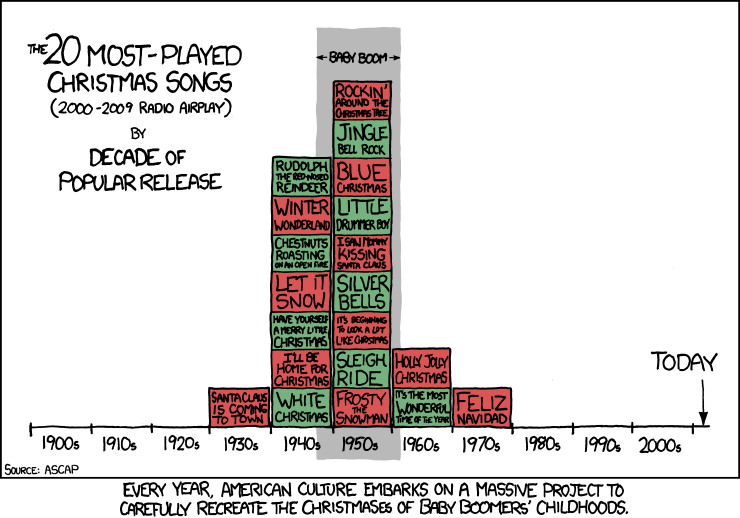
December 17, 2019
QotD: The mass cowardice of the Baby Boomers
Unlike the Beat Generation that headed off to North Africa or South America for a few weeks or months of “real” freedom before settling into permanent disaffection and (if they were lucky) early, spectacular death, boomers said, “Screw it, let’s make our own life right here.” What started as an effort to build a counter-culture soon fragmented into niche cultures that had nothing to do with, or even hated, flower power. That continued with succeeding generations to the point that today, with a big boost from technology, the average American can burrow deep into one comforting culture and/or surf across dozens of cultures with equal ease.
The mythical hippy-drippy boomer even gave birth to another myth that refuses to die, that of their conservative Millennial offspring. Considering this all started 20 years ago with a limp Michael J. Fox sitcom, it is time to retire the played out joke before it gets flipped onto the next generation. Holo-headline 2031: “Look! The conservatives have hippie kids!”
Yet history will show that, for all their organizing skill and moral sensitivities, the boomers took a pass on actually changing one hellish state policy rather than have a few uncomfortable conversations with their kids. Gotta have that moral high ground even at the kitchen table, it seems. Boomers have collaborated and shamelessly switched sides on the war on drugs with full knowledge of the repercussions. If the greatest generation had landed at Omaha Beach, pissed themselves, tossed their weapons into the sea, and begged to serve as Nazi slop-boys, then you might have an equivalent act of mass cowardice.
Jeff A. Taylor, “Boomer or Bust: Reflections of a generational refugee”, Reason, 2004-12-14.

